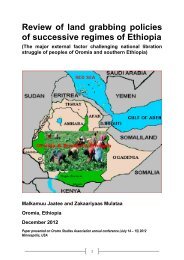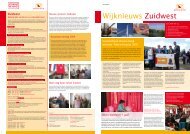freakonomics
freakonomics
freakonomics
Create successful ePaper yourself
Turn your PDF publications into a flip-book with our unique Google optimized e-Paper software.
After some wrangling, J. T. promised Venkatesh unfettered access to the gang’s<br />
operations as long as J. T. retained veto power over any information that, if published,<br />
might prove harmful.<br />
When the yellow-gray buildings on the lakefront were demolished, shortly after<br />
Venkatesh’s first visit, the gang relocated to another housing project even deeper in<br />
Chicago’s south side. For the next six years, Venkatesh practically lived there. Under J.<br />
T.’s protection he watched the gang members up close, at work and at home. He asked<br />
endless questions. Sometimes the gangsters were annoyed by his curiosity; more often<br />
they took advantage of his willingness to listen. “It’s a war out here, man,” one dealer<br />
told him. “I mean, every day people struggling to survive, so you know, we just do what<br />
we can. We ain’t got no choice, and if that means getting killed, well shit, it’s what<br />
niggers do around here to feed their family.”<br />
Venkatesh would move from one family to the next, washing their dinner dishes and<br />
sleeping on the floor. He bought toys for their children; he once watched a woman use<br />
her baby’s bib to sop up the blood of a teenaged drug dealer who was shot to death in<br />
front of Venkatesh. William Julius Wilson, back at the U. of C., was having regular<br />
nightmares on Venkatesh’s behalf.<br />
Over the years the gang endured bloody turf wars and, eventually, a federal indictment. A<br />
member named Booty, who was one rank beneath J. T., came to Venkatesh with a story.<br />
Booty was being blamed by the rest of the gang for bringing about the indictment, he told<br />
Venkatesh, and therefore suspected that he would soon be killed. (He was right.) But first<br />
Booty wanted to do a little atoning. For all the gang’s talk about how crack dealing didn’t<br />
do any harm—they even liked to brag that it kept black money in the black community—<br />
Booty was feeling guilty. He wanted to leave behind something that might somehow<br />
benefit the next generation. He handed Venkatesh a stack of well-worn spiral<br />
notebooks—blue and black, the gang’s colors. They represented a complete record of<br />
four years’ worth of the gang’s financial transactions. At J. T.’s direction, the ledgers had<br />
been rigorously compiled: sales, wages, dues, even the death benefits paid out to the<br />
families of murdered members.<br />
At first Venkatesh didn’t even want the notebooks. What if the Feds found out he had<br />
them—perhaps he’d be indicted too? Besides, what was he supposed to do with the data?<br />
Despite his math background, he had long ago stopped thinking in numbers.<br />
Upon completing his graduate work at the University of Chicago, Venkatesh was<br />
awarded a three-year stay at Harvard’s Society of Fellows. Its environment of sharp<br />
thinking and bonhomie—the walnut paneling, the sherry cart once owned by Oliver<br />
Wendell Holmes—delighted Venkatesh. He went so far as to become the society’s wine<br />
steward. And yet he regularly left Cambridge, returning again and again to the crack gang<br />
in Chicago. This street-level research made Venkatesh something of an anomaly. Most of<br />
the other young Fellows were dyed-in-the-tweed intellectuals who liked to pun in Greek.









